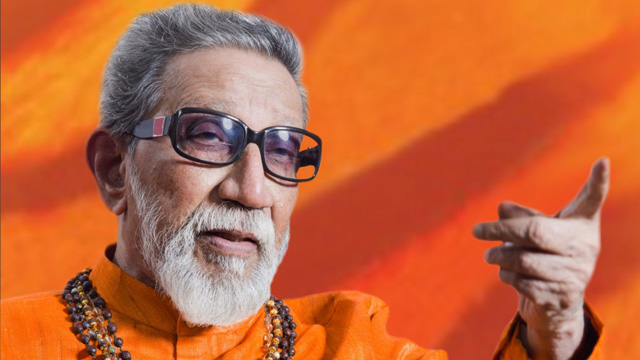“Don’t threaten me. Do as you wish. I am not afraid of anyone!†My editor was responding to a threat call as I entered the newspaper’s office.
The threats by the Shiv Sena, a largely-local political party, to the editor of the local newspaper where I had just started freelancing, introduced me to the violent side of Bal Thackeray’s politics.
The threat was not just verbal. The newspaper office was soon ransacked. But the editor stood his ground to report stories about Shiv Sena without fear. That was my first-hand experience with fearless journalism and politics of fear. I soon stopped freelancing as I got busy with education. But the attacks on the editor and the publication continued over the years.
This was the first time I had come face-to-face with Shiv Sena head Bal Thackeray’s terror tactics. As a young man, I learnt a strange lesson in politics – the Shiv Sena, whose activism was based on protecting the rights of the local people of India’s western state of Maharashtra (Marathis), was attacking a Marathi editor. It was an attack on a Marathi paper and whose staff was mostly Marathi.
Today, as the news broke of the Shiv Sena chief Bal Thackeray’s death, those memories returned to my mind.
And I hoped that my Mumbai, the city where I was raised, does not succumb to the same terror tactics on the eve of Bal’s last rites. I wish that Shiv sainiks, as the party’s activists are known, show restraint and pay homage to their leader in a way that will truly win Mumbaites’ hearts. At the time of writing, Mumbai is tense but calm as it prepares for the final journey of its leader.
There’s fear in the air, but there aren’t any incidents of violence reported. The Sena activists reportedly forced shops and businesses to down their shutters, but it is Mumbai Police, whose staff largely comprise Marathi officers, that has shown remarkable acumen in controlling the potentially inflammable situation. The police also showed sensibility while announcing the news of Bal’s demise as he battled for life over two days.
The news was released only after the administration were reasonably confident that crowd-management mechanism was deployed.
The news divided public opinion just as Bal Thackeray’s speeches and interviews had divided Mumbai during his nearly 40-year long political career. No, Mumbai wasn’t divided between Marathis and non-Marathis. It was divided between Sena’s supporters and non-supporters. Just as many non-Marathis were Sena supporters, there were many Marathis, including the writer, that did not support Sena’s fear tactics. Support for Sena was not entirely based on one’s regional origin, but one’s value system – on whether one believed in fear-mongering.
Politics of fear are not limited to Shiv Sena in India. Most political parties are known to have activists and leaders that practice terror tactics.
Bal gave Mumbai terror. He followed anti-migrants strategy. But he was fighting a losing battle. Mumbai’s cultural and economic landscape is shaped by migrants – those travellers who came to the dreamland from other states of India. In that sense, he was trying to protect the rights of the local people in a city that never had Marathi soul – for as long as I can remember. And that was the uniqueness of the city – I grew up in a multi-cultural environment, and no efforts by a political party could change that.
Bal however played a key role in building the city’s infrastructure. His support to the ambitious Worli Sea Link road and Mumbai-Pune Expressway brought these projects to reality. He ran many social welfare programmes, including free ambulances.
As the Hinduism-driven Bal started his last journey this morning, secular India witnessed his body wrapped in the country’s national flag that supports the values of brotherhood among India’s religiously diverse groups.
One wonders what Bal would have had to say on that!


Leave a Reply